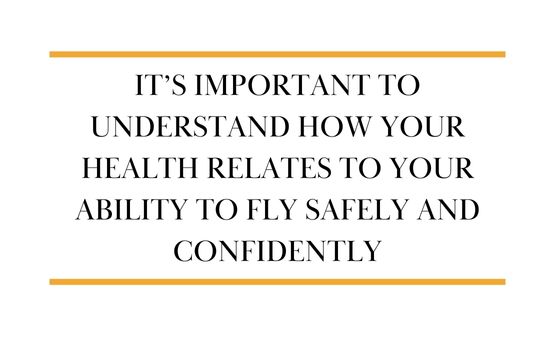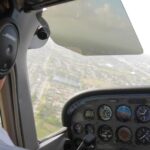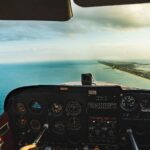How Do You Know When A Health Scare Affects Your Medical?
“Houston, we have a cold…”
On the journey to finding the answer to how to become a commercial pilot, there are many hurdles that some wouldn’t think of. We’re all human beings (demographics show that our vampire readership is negligibly low) and from time to time, we’re all going to experience a significant change in our medical status, long or short term, serious or casual, that will have us asking, “Will this affect my medical?”
Maybe you’ve started taking a new medication; can you fly on this medication? Maybe you’ve developed diabetes; does this affect your medical? You’ve recently experienced a stroke or heart attack; how does this affect your medical status? Migraines, epilepsy, color blindness… how do you deal with this new information when it comes to your FAA medical?
Let me start off by saying that I am not a doctor, my wife is not a doctor, I don’t play a doctor on TV and I did NOT stay at a Holiday Inn Express last night. The final answer and ruling of all medical conditions and how they are going to affect your ability to keep your FAA medical rests solely in the hands of your AME.
With all of that being said,and understanding full well that the concept of the medical as so many of us know it may be going through dramatic changes in the next few years, let’s ask ourselves the intent of the aviation medical. Why do we have it? Well, we are flying planes here, right? And whether we have passengers or not, the control of the aircraft and the safety of flight rests in our hands, so it certainly makes sense that there exists a regularly scheduled time that we ensure we are still fit to fly. Obviously, those who answer the question how to become a commercial pilot, responsible for the lives of so many, have shorter intervals for those quality control check-ups, but a private pilot flying the family on a trip has people depending on his wellness as well.
So with that background, before contacting your AME, you may want to ask yourself if YOU feel fit to continue exercising the privileges of your medical. Does this episode restrict you in any other way, like driving, breathing or moving around? If the answer is “yes”, you might want to restrict your flying. You should have personal minimums and a personal checklist, the I’M SAFE checklist (Illness, Medications, Stress, Alcohol/Alertness, Fatigue, Emotions/Everything else) works well here. Of course, more serious conditions, even if you make your own conservative and prudent ruling, will need the blessing of an AME before starting to fly again.
If you have a medical condition that you think inhibits your ability to fly, it is your responsibility to ground yourself. This is just as true for sport who undertake the search for how to become a commercial pilot, who self-certify their own medical condition, and it also applies to someone transitioning to the sport pilot world. If you develop high blood pressure and don’t think you’ll be able to pass your next third-class medical, you can’t just decide to be a sport pilot; you are aware of a medical condition that would prohibit your ability to fly. The sport pilot self-certification doesn’t work that way. 14 CFR 61.23(c)(2)(iv) states that you must ” Not know or have reason to know of any medical condition that would make a personunable to operate a light-sport aircraft in a safe manner.”
During my time in aviation, I’ve known people who have suffered heart attacks, developed diabetes, gone on medications on the FAA’s “no-no” list, and I’ve known these people, after some due process and red tapes to get their medicals back. We’re all getting older, and are likely going to experience some medical hurdles, but do not despair! In many cases, with a little paperwork, we can get ourselves back up in the air again.
If you do develop a medical condition that adversely affects your ability to maintain your medical, or if you just have questions about the airman medical, AOPA offers assistance from their Medical Aviation Specialists. This is a good resource for pilots dealing with medical issues.
Call 800-USA-AOPA or email them at medicalassist@aopa.org .










